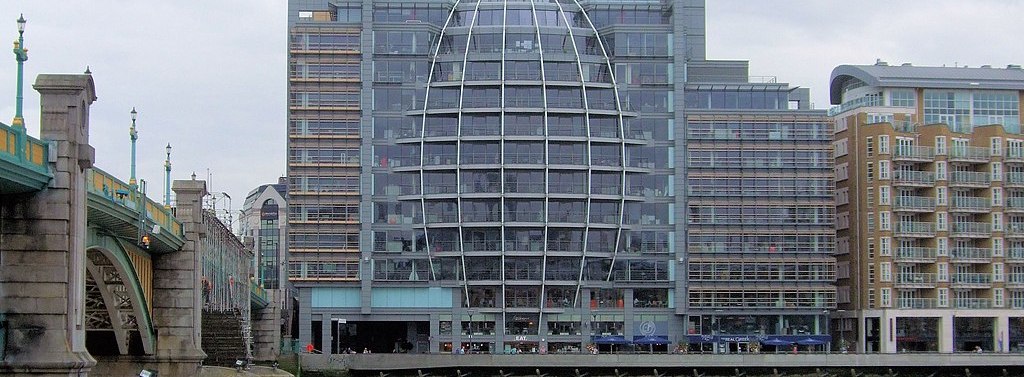Warnings about the insidious dangers of Fox News for the future of America come from, among others, the Murdoch family itself. According to Gabriel Sherman, in a piece on the Murdochs for Vanity Fair in May this year, “James is horrified by Fox News and tells people the network’s embrace of climate denialism, white nationalism, and stolen election conspiracies is a menace to American democracy”. He is not alone. Many others have drawn a direct line from the infatuations of Fox talk show hosts with Donald Trump and his America First cult to the storming of the US Capitol on January 6, 2021, and the attempt to prevent Joe Biden taking power.
.
Yes, the unfiltered and ubiquitous nature of social media helps to unite the fanatics and fantasists in their conviction that the 2020 presidential election was stolen. And yes, some of the astonishing evidence that emerged from the $1.6billion defamation suit (settled for $787 million) brought by Dominion Voting Systems against Fox News demonstrates not just the contempt that some of those talk show hosts have for their audience, but their own cynicism about the baseless propaganda they were spewing on their own shows (one email showed Murdoch himself calling Trump’s fraud claims “really crazy stuff ”). And yes, Fox News has successfully monetised a gap in the news market for those happy to be trapped in a filter bubble of far-right conspiracy theorists and QAnon devotees. It is simply offering a significant segment of the population a news channel they wanted.
.
However, all three issues are beside the point. Social media accounts are fragmented, and very few have the kinds of following that will help to incite an insurrection without the enormous power of a well-funded news network to unite a nation behind TV personalities happy to spread the conspiracy gospel. Fox News’s daily two million prime time viewers are the catalyst for those Facebook and Twitter posts, not vice versa.
.
That those gospel choirs are sniggering behind the backs of their adoring fanbase makes them all the more culpable for the angry resentment they deliberately foment. And the fact that democracies have inbuilt markets for the dangerous propaganda that feeds authoritarian populism – and potentially democracy’s own self-destruction – does not justify the drumbeat of partisan disinformation that now dominates the evening airwaves of Fox News. We do not, as a civilised society, support public flogging or hanging just because a significant minority would be willing to pay to watch.
.
How is this relevant to the UK? Because the advent of two new avowedly right-wing news channels – Legatum-funded GB News and Rupert Murdoch’s Talk TV – have started to introduce partisan (and in some cases conspiracist) programming to the UK. For all the reasons given above, there is threat to democracy if these continue unabated. Traditionally, we have a bulwark in the UK against this kind of unbridled, unfiltered propagandist approach to broadcast news and information: an impartiality regime passed by Parliament and policed by Ofcom. But Ofcom is failing us – and by failing us, it is failing democracy.
.
From the very beginning of commercial television in 1955, the UK has legislated for an impartiality regime in broadcasting that covers every TV and radio station licensed by the regulator. The current regulator is Ofcom, and the statutory impartiality obligations it is obliged to enforce are contained in sections 319 and 320 of the Communications Act 2003. S319 requires that “news included in television and radio services is presented with due impartiality”, while S320 lays down “special impartiality requirements” for programmes dealing with “matters of political or industrial controversy” and “matters relating to current public policy”. Two crucial points should be emphasised here: first, nowhere does the statute refer specifically to “news programmes”; and second, these requirements include the exclusion of “all expressions of the views or opinions of the person providing the service” (in this context, “person” refers simply to the Ofcom licensee).
.
Ever since cable and satellite technology in the 1980s heralded the arrival of new TV channels to challenge the UK’s four terrestrial channels, there have been calls to abandon those rules from the left and the right. On the left, one of the UK’s great television documentary-makers, John Pilger, convinced that the impartiality regime upholds a comfortable establishment or “consensus” perspective which silences serious dissent, once described the word itself as “almost Orwellian in the perversity of its opposite meaning”.
.
On the right, libertarian free marketeers have long argued that the rise in TV and radio channels renders any regulatory imposition superfluous. Indeed, in 2007, Ofcom itself produced the report New News, Future News, which asked whether, in a digital environment, “for channels other than the main PSBs, is impartiality still important, or is it a barrier to diversity in an era with a wide range of services available to viewers?” It also inquired whether other channels should “be allowed to offer partial news in the same way that newspapers and some websites do at present”.
.
Those ideas received a hostile reception (apart from the Murdoch-owned newspapers) and were abandoned, although Ofcom did license Fox News for re-broadcasting in the UK for 15 years until 2017, when the Murdochs pulled it from Sky as part of their attempted takeover of the whole of BSkyB (subsequently abandoned). The “free market of ideas” ideology was most forcefully put by the younger Murdoch son James in his 2009 MacTaggart lecture at the Edinburgh Television Festival, when he argued that impartiality was “an impingement on freedom of speech and on the right of people to choose what kind of news to watch”.
Photo: Jim Linwood via Wikipedia. CC BY 2.0












